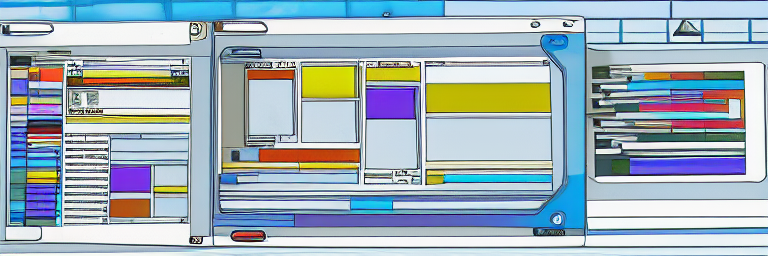An Introduction to Order Management Systems
Order management systems (OMS) are software solutions that are used to manage the entire order process from order entry to fulfillment and invoicing. These systems are designed to automate, streamline, and organize the entire order process. They can be used to manage customer orders, track inventory, process invoices, and generate reports.
The purpose of an Order Management System is to provide an efficient and consistent way to process customer orders, track inventory, and generate invoices. It can also help with forecasting, customer service, and customer satisfaction. OMSs are designed to make the entire order process as streamlined and efficient as possible.
Order Management Systems offer a variety of benefits to businesses. For example, they can help reduce costs by streamlining the order process and eliminating manual labor. OMSs can also provide better customer service by allowing customers to place their orders quickly and easily, and then track the progress of the order. Additionally, OMSs can increase sales by allowing customers to purchase items in bulk, or on an ongoing basis. Finally, OMSs can help businesses better manage their supply chain by providing them with real–time visibility into inventory levels, allowing them to make informed decisions about what to purchase and when.
Overall, Order Management Systems are a great tool for businesses looking to streamline their order process, reduce costs, and improve customer service. By utilizing an OMS, businesses can improve their efficiency and customer satisfaction, while simultaneously increasing their sales.
OMS Examples
An Order Management System (OMS) is a software system designed to help businesses manage their orders throughout the entire ordering process. OMS systems are used to track orders, manage inventory, process payments, fulfill orders, and provide customer service.
Examples of Order Management Systems include:
1. CommerceCloud: CommerceCloud is a cloud–based OMS that enables businesses to manage their entire order life cycle from initial order entry to order fulfillment. It is designed to help businesses streamline their order processing and improve customer service.
2. ShipStation: ShipStation is a cloud–based OMS that streamlines order processing and shipping. It is designed to help businesses manage their orders, process payments, and fulfill orders quickly and accurately.
3. NetSuite: NetSuite is an enterprise resource planning (ERP) system that includes an OMS. It is designed to help businesses manage their orders, inventory, customer relationships, and financials.
4. Salesforce: Salesforce is a cloud–based customer relationship management (CRM) system that includes an OMS. It is designed to help businesses manage their order processing, customer service, and marketing activities.
5. Brightpearl: Brightpearl is a cloud–based OMS that is designed to help businesses manage their orders, inventory, and customer relationships. It is designed to help businesses improve their efficiency and customer service.
Considerations
When considering an Order Management System (OMS), there are a few key considerations to keep in mind. The first is scalability. A good OMS should be able to accommodate the growth of your company. As you add more customers and products, the software must be able to keep up with the demand. Additionally, an OMS should provide features that make it easy to manage orders, such as automated order processing, inventory tracking, and customer data integration.
The second consideration is integration. An OMS should be able to integrate with other third–party systems to ensure a seamless customer experience. This could include integrating with CRM, ERP, and accounting systems. It should also be able to integrate with payment gateways, shipping carriers, and other services to ensure a streamlined order process.
The third consideration is ease of use. A good OMS should be easy to use and understand. This includes having intuitive interfaces, simple navigation, and accessible customer support. Additionally, the software should be able to handle complex orders, such as multiple product types, customized orders, and global orders.
Finally, security should be a key consideration when selecting an OMS. It should be able to protect customer data with encryption and other security measures. Additionally, the OMS should have built–in fraud detection capabilities to ensure customer safety and security.
By considering these key factors, you can be sure to select the right OMS for your business needs.
The Future Outlook
Order Management Systems (OMS) are becoming increasingly popular and important for businesses of all sizes, as they enable efficient management of all aspects of the order lifecycle. OMSs are expected to become an even more integral part of the business landscape in the future, as businesses become more aware of the potential benefits they offer.
One of the key trends in the future of OMSs is the integration of existing technologies, such as AI and Machine Learning, to further automate and improve the order management process. This will help to reduce costs and improve efficiency, while also enabling more accurate forecasting and decision–making. Additionally, OMSs are expected to become more connected and streamlined with other enterprise systems, such as ERPs and CRMs, to provide a more comprehensive view of the customer journey.
The use of OMSs is also expected to expand to cover the entire customer lifecycle, from the initial sales inquiry to post–sales support. This will provide a more holistic view of the customer experience and enable more tailored marketing campaigns to increase customer loyalty and engagement. Additionally, OMSs are expected to become more intelligent and proactive, with the ability to identify patterns and provide predictive insights in order to optimize sales and operations.
Finally, the rise of e–commerce is expected to drive further innovation in OMSs, as businesses look to capitalize on the potential of online shopping. This will likely include more sophisticated tracking and analytics, as well as improved inventory management and order fulfillment capabilities.
Overall, the future outlook for Order Management Systems is bright and full of potential. As businesses become increasingly aware of the potential benefits of OMSs, the technology is expected to become an even more integral part of the business landscape.

